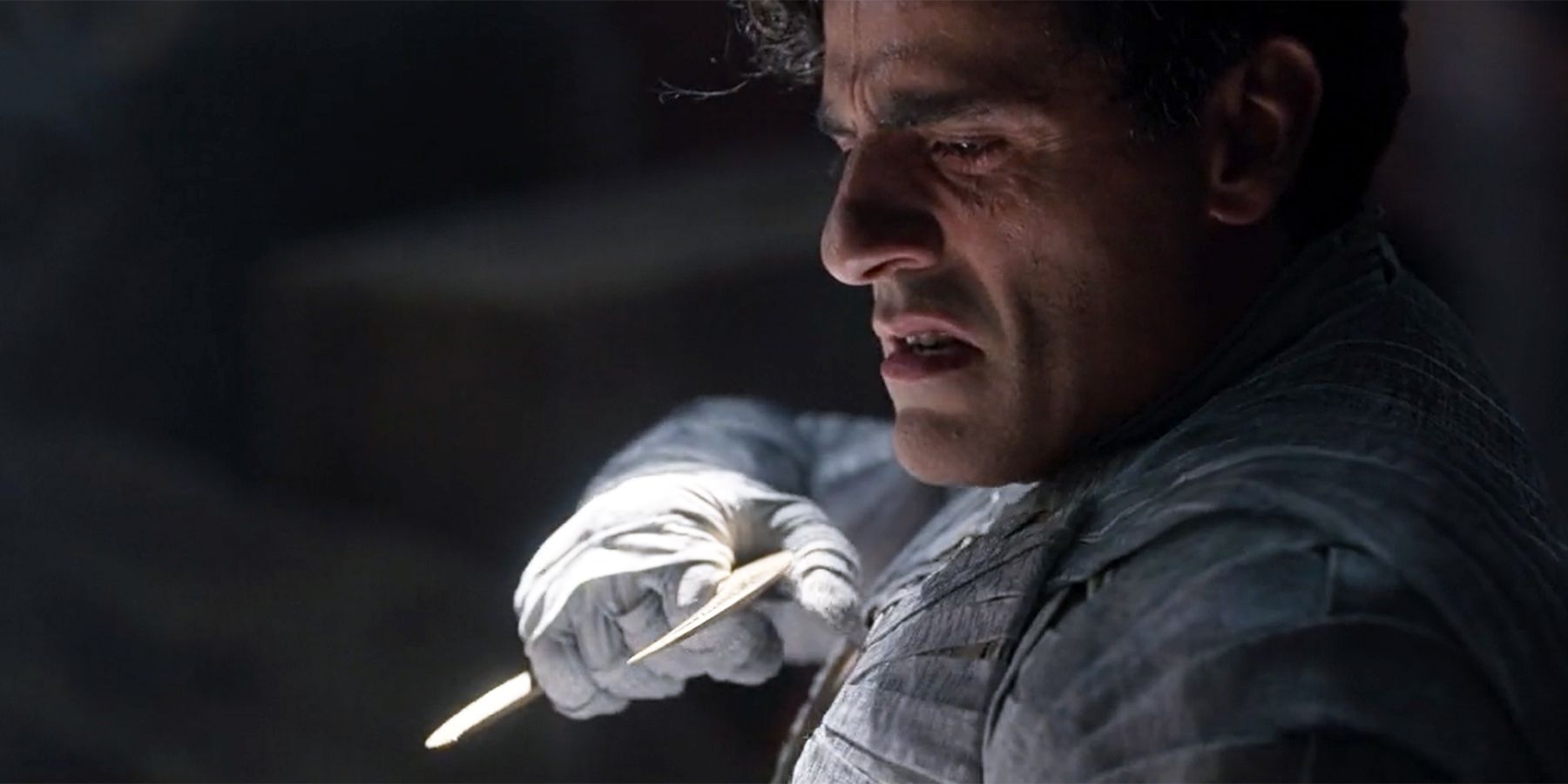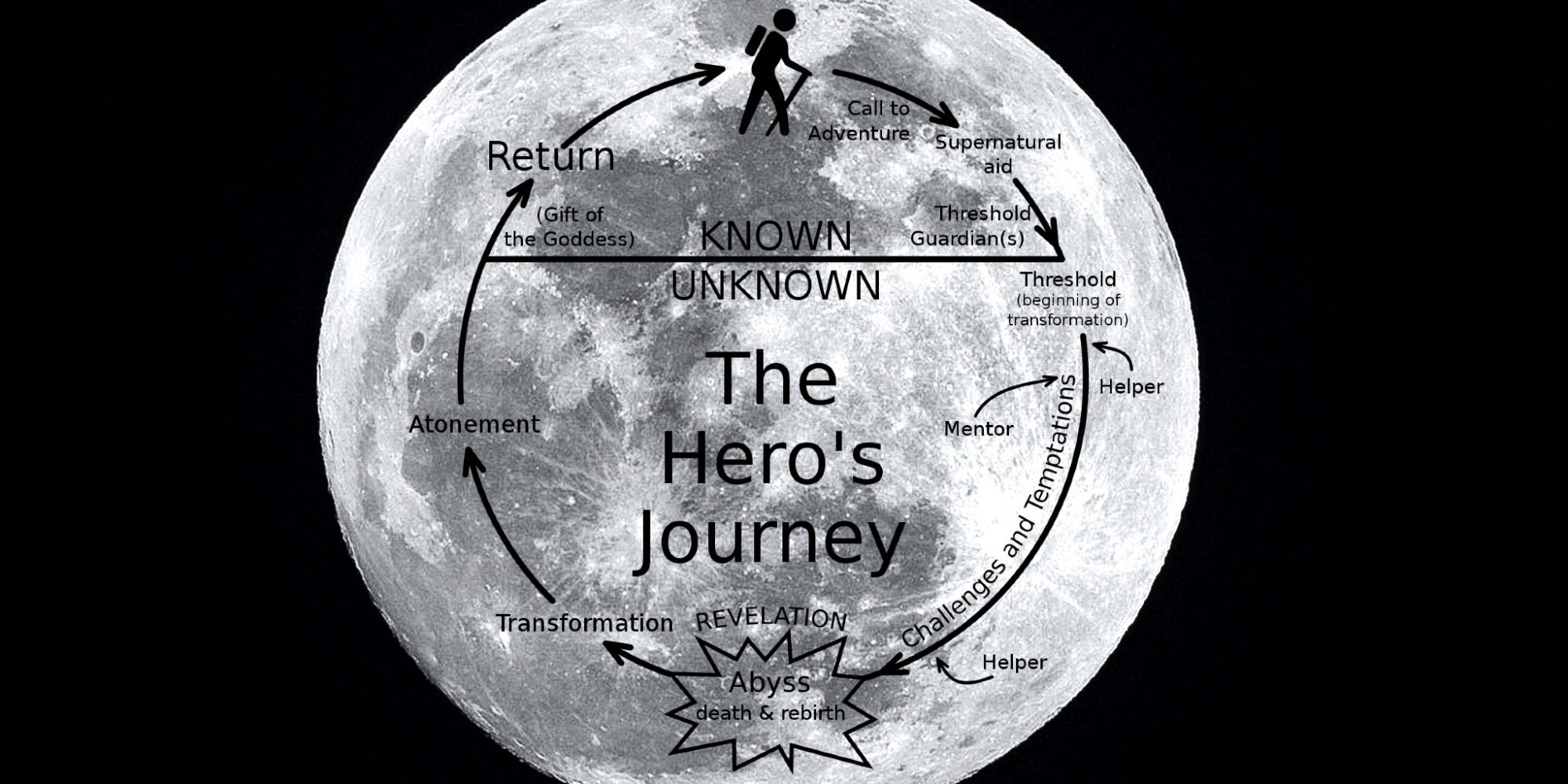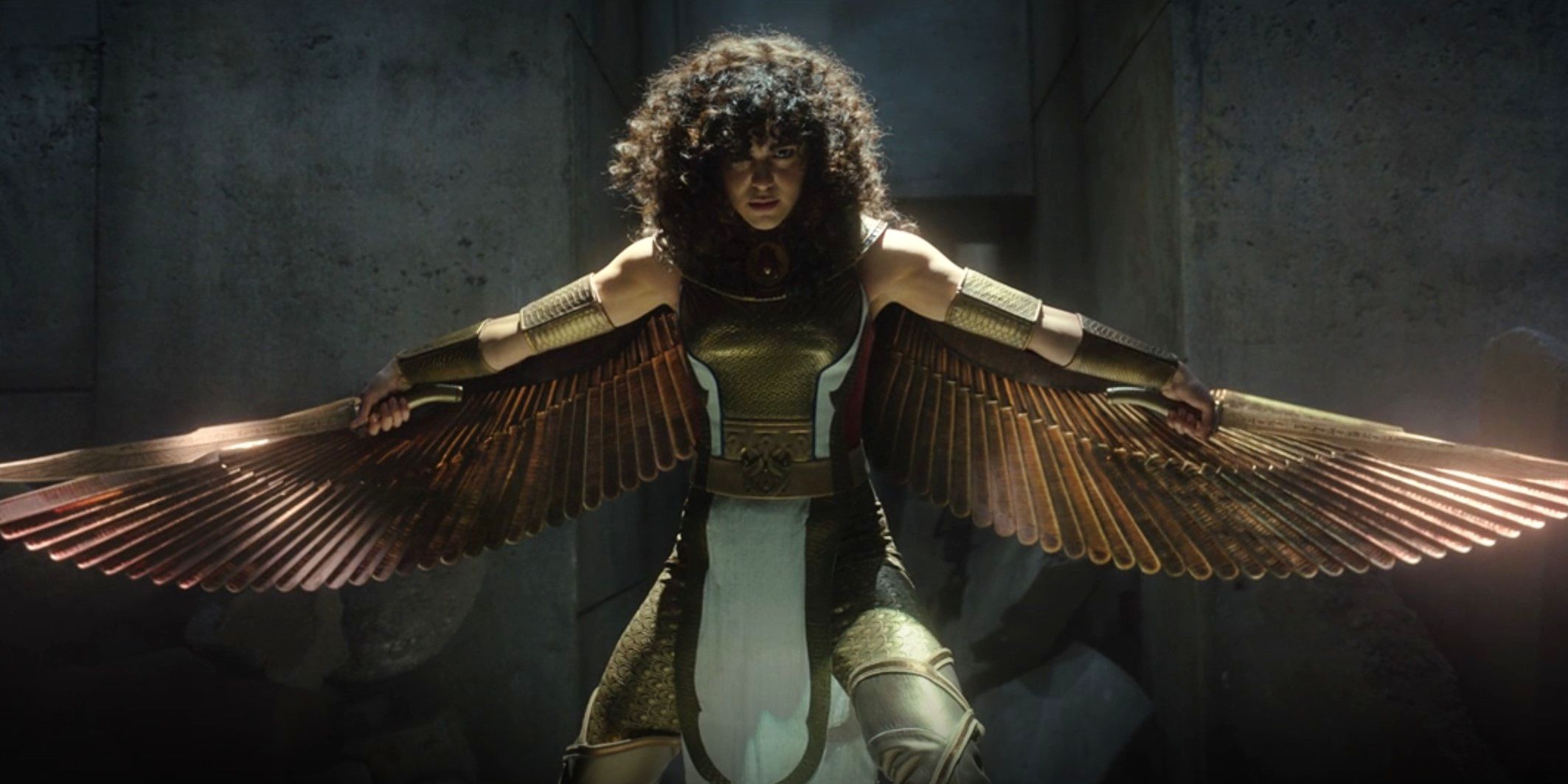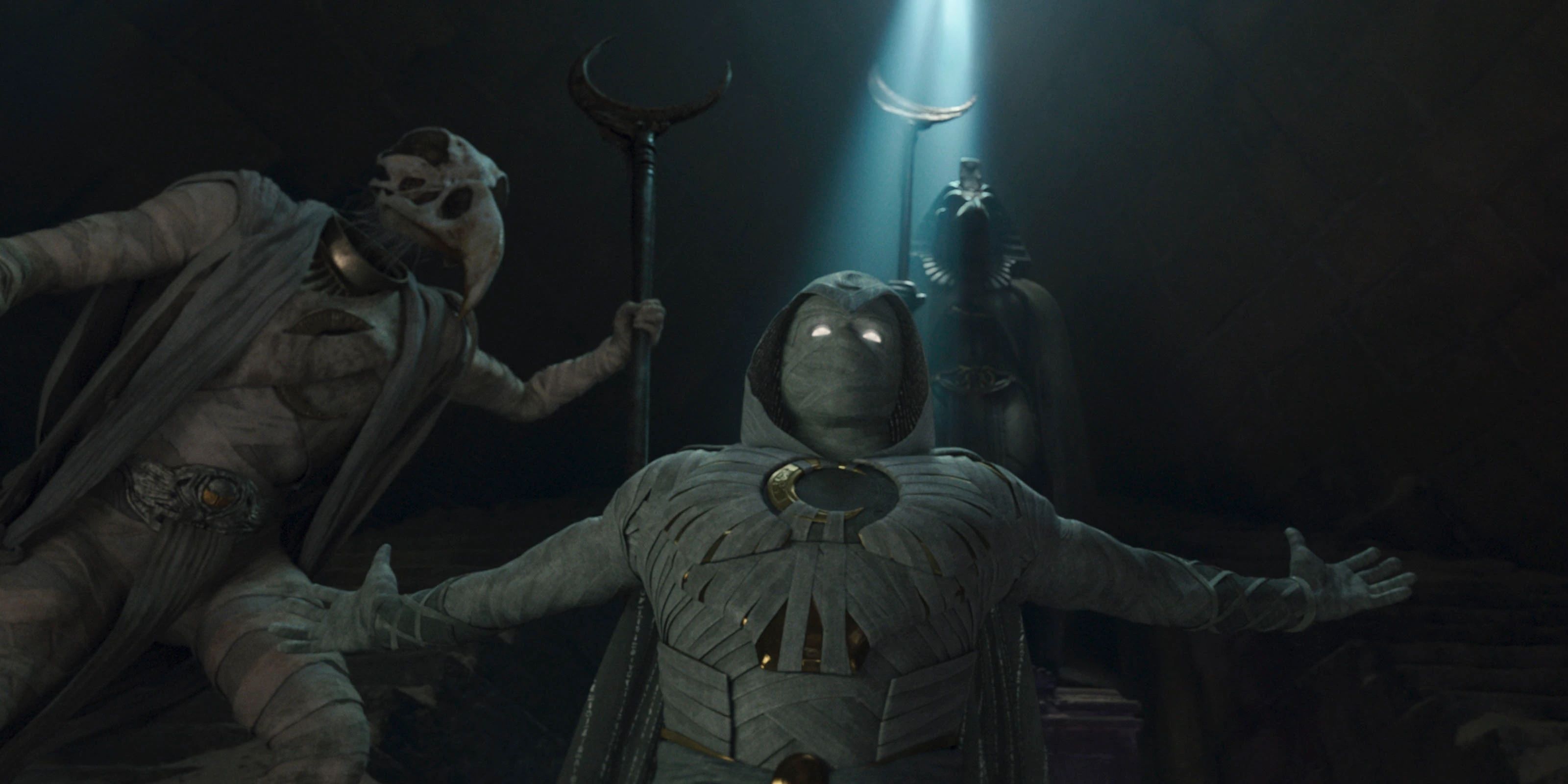The following article contains spoilers for Moon Knight.
The Avengers may have been conceived as a group of remarkable individuals but even after a 15-year trajectory, Moon Knight might just be one of the MCU’s most outstanding characters in large part because of how hard it would be to make him fit in with everyone else. Marc Spector is an outcast, and such status does come with some perks the rest of Marvel is sorely lacking.
In that sense, Moon Knight occupies a different place as he alongside Bucky Barnes come to represent the darker side of superheroes, the ones whose genesis story is not one of destiny, honor or responsibility but that of tortured individuals just trying their best to atone for their past sins. However, unlike the Winter Soldier, Moon Knight is not an Avenger, and at least for now his journey to becoming one looks far from over.
An Avenger’s Journey
Despite being a highly debated concept in modern days, the so-called “Hero’s Journey” offers a ready-made template for what a typical superhero story can look like, in fact, it’s remarkably similar to the beginnings of almost every original Avenger and many that came after, with Tony Stark being the prime example of it. Sometimes this involves heroes literally being thrown into an abyss, as in Doctor Strange and Black Panther’s case, in others the path is a little less straightforward with Iron Man going through a first journey in his debut film, as well as the larger overarching evolution that takes place during the entire Infinity Saga.
It’s arguable to what extent each Marvel story adheres to this old monomyth, yet one thing is for sure, Moon Knight’s life story doesn’t fit this mold. There’s no call to adventure in Marc’s life, he merely leaves his broken home running away from his mother’s abuse; Marc is rarely in the driver’s seat for most of the life-defining moments he experiences, such as being discharged from the armed forces; and, lastly, his supernatural aid is more like a single desperate lifeline from Khonshu, who might as well be Moon Knight’s villain.
As was revealed during the “Asylum” episode, Marc and Steven’s tale is more of a perpetual abyss, they’ve suffered since their early childhood, they’re not heroes for most of their lives but rather victims, and even Steven is in some way a victim of Marc’s deflection tactics. Moon Knight’s ending even features a goddess’ gift, and it’s worth saying Layla’s transformation into the Scarlet Scarab mirrors a hero’s journey much more than the real protagonist, nevertheless, the finale reveals it was all for nothing.
Marc rises back from the dead, he rescues Steven from the belly of the whale to signal his intent of finally accepting his two personas, his desire of becoming strong enough to face up to Khonshu and demand his freedom, and it’s all for nothing. Moon Knight’s finale is outright depressing because the good guy doesn't win, a rare occurrence in the MCU that’s even worsened when it’s clear his darkest facet has taken over, and the biggest proof this is not a run-of-the-mill superhero.
Moon Knight Embraces Its Differences
Being a superhero that’s constantly battling his own mental illness means the abyss is much closer for Moon Knight than anyone else, celebration of his victories can always be cut short, and even in the best-case scenario, his win means he’s left alone without the woman he loves. For viewers though, this enables the possibility of seeing the MCU from the perspective of someone entirely different, whereas Marvel’s world if often bright and optimistic, Marc’s life is dark and full of terrors.
Doctor Strange in the Multiverse of Madness may be flaunting Sam Raimi’s horror genre influences, but Moon Knight will always hold the title of being the one that pulled it off first. Whether it’s Marc’s own blackouts that lead to him waking up surrounded by lifeless bodies, or the perpetual dread incited by not knowing if Moon Knight can be trusted to tell his own story, the series uses narrative resources that simply aren’t available to those other fortunate and mentally stable heroes.
Moon Knight’s body count is just another example of this, both as a mercenary and as Khonshu’s avatar, Marc’s death toll only seems comparable to the brainwashed Winter Soldier, but the fact that each one of those deaths haunts him prevents the audience from dehumanizing the character. This is crucial to set up one of the finale’s -seemingly- pivotal moments when Marc refuses to kill Harrow, thus falling in line with what one would expect from a real Avenger, until Khonshu and Jake Lockley take over.
If Disney truly doesn’t know what it wants to do with Oscar Isaac and Moon Knight, future writers that tackle the character ought to remind themselves that what makes this character worth watching is that he’s not like the rest. Marvel’s Midnight Suns are the perfect setting for this non-Avenger to to climb out of the abyss, or maybe to continue falling further down because in Moon Knight’s case, both fates are equally acceptable.




